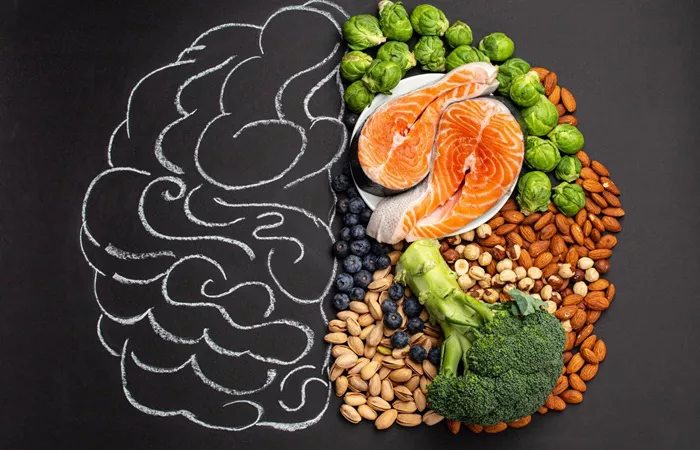A new study suggests that following the MIND diet—a brain-healthy eating plan—may reduce the risk of developing dementia, even if adopted later in life. The findings were presented at NUTRITION 2025, a meeting of the American Society for Nutrition.
Dementia, which affects memory and thinking skills, currently impacts more than six million Americans, with Alzheimer’s disease being the most common form. As the population ages, that number is expected to rise. However, researchers are finding that lifestyle choices, including diet, can play a key role in reducing the risk.
What Is the MIND Diet?
The MIND diet combines elements of the Mediterranean and DASH diets and focuses on foods that support brain health. It encourages the consumption of leafy greens, berries, nuts, whole grains, and olive oil, while limiting red meat, fried foods, and sweets.
Details of the Study
The study analyzed data from the Multiethnic Cohort Study, which began in the 1990s and includes nearly 93,000 U.S. adults from diverse racial and ethnic backgrounds. Participants were aged 45 to 75 when they joined and provided detailed information about their eating habits.
Over the course of several decades, more than 21,000 participants were diagnosed with Alzheimer’s or related dementias. Researchers evaluated how closely participants followed the MIND diet and compared this to their dementia outcomes.
Key Findings
Participants who adhered most closely to the MIND diet had a 9% lower risk of developing dementia. The risk reduction was even greater—about 13%—among African American, Latino, and white participants.
Significantly, the study found that improving dietary habits over a 10-year period was linked to a 25% lower risk, even among older adults. This suggests that it’s never too late to make changes.
However, the diet showed little or no protective effect among Asian American and Native Hawaiian participants. Researchers believe this may be due to cultural differences in traditional diets that aren’t fully captured by the MIND diet scoring system.
A Note on Limitations
This was an observational study, meaning it can show associations but not prove cause and effect. Other lifestyle or genetic factors may also have contributed to the outcomes. In addition, the findings have not yet been peer-reviewed.
What This Means for You
The study offers hopeful news: changing your diet—even later in life—can help protect your brain. Experts suggest that small, gradual changes are effective. For example, adding more leafy greens to meals or replacing butter with olive oil can make a difference over time.
While more research is needed, the MIND diet remains a practical and accessible way to support cognitive health. For people in their 50s, 60s, or beyond, the message is clear—it’s not too late to start making changes that could benefit your brain.
Related topics:


